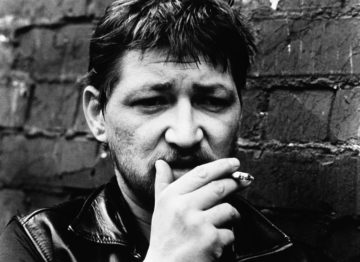
William Harris in Jacobin:
One day in the mid-’70s on an air force base in “flattest, dullest” Norfolk, England, an African-American airmen shared some of his deep Southern blues records with a young, white English boy named Ian Penman. The meeting was more or less random, occasioned by the drift and cloistered openness of Royal Air Force family life; the music, rough and transporting, was more or less transformational. Up until then, the great love of Penman’s life was painting. Like many working-class teens in the punk and post-punk years, he appeared bound for art school. But suddenly music took the lead.
He found a record store run by a soul aficionado in the drowsy port town of King’s Lynn and fashioned a lifelong love for black American music, pop, and its subcultural tangents more generally. The sound of punk left him cold, but the culture’s radicalism lured him. Before long he’d given up on art school and begun writing for the popular music magazine that rode the postwar waves of succeeding rock styles to new heights: the New Musical Express or NME.
For some of the magazine’s historians and fans, Penman’s entrance marked the beginning of its downfall: the paper’s finger slipping from post-punk’s pulse and embracing instead an overly intellectual navel-gazing. For others, he was the greatest writer from the magazine’s greatest era, the vanishing, too-good-to-be-true years in the early English ’80s when socialist politics, French theory, and novel reveries in pop music all seemed to linger on the same corner, and to play off each other in the tossed-off pages of the same daring magazine.
More here.
